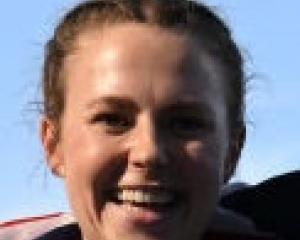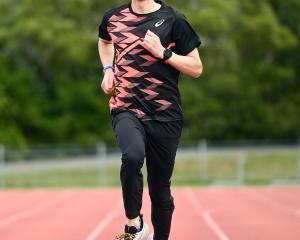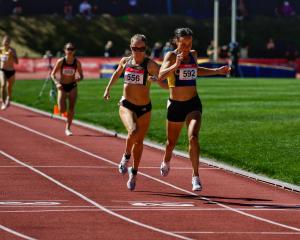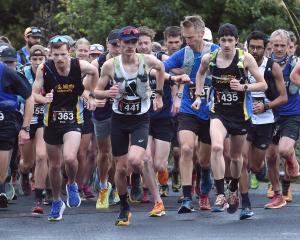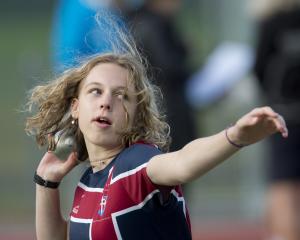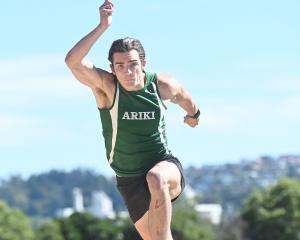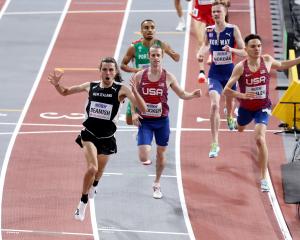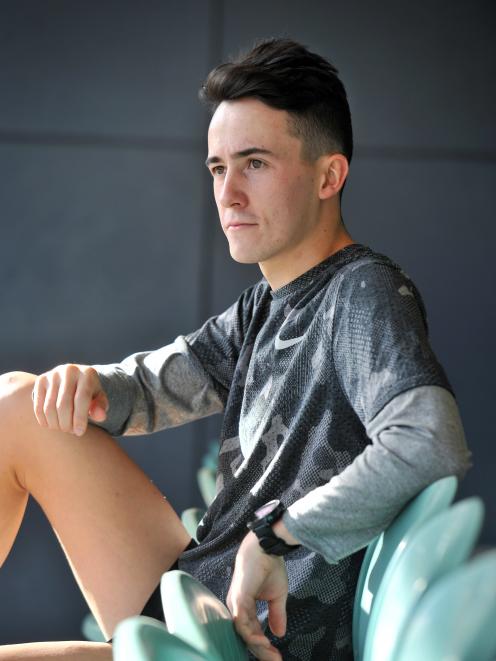
That is the new plan for Oli Chignell.
The Dunedin runner returned from Belgium this week and is already plotting his course to next year's Olympics.
It has been a remarkable two months for the 21-year-old.
Racing in Europe alongside Dunedin's Sam Bremer, he has taken 25sec off his 5000m personal-best and 20sec in the 3000m.
There is more to come too.
The day he ran 13min 46.68sec in the 5000m he had been sick for the week prior.
He hit the wall with about 800m to go, the point he normally would reach 600m later.
It leaves him ranked 64th in the world.
To qualify for Tokyo he needs to crack the top 40.
He can do that by accumulating points at IAAF events of which there will be plenty in New Zealand and Australia this summer.
It is looking like a realistic goal. Yet when looking at how far he has come, it is a little tough to comprehend.
"It is quite crazy thinking three years ago I was trying to run a 64sec lap for a 4min 1500m and now I'm trying to run a 64sec lap for an 8min 3km," he said.
"I'm doing 5km now where I'm running laps at 66, potentially 65sec."
He is rapidly closing in on the Otago senior men's records and hopes to knock them off in the next year.
At present, Blair Martin's run of 13min 40.66sec from 1998 remains the mark in the 5000m.
In the 3000m, Dick Tayler's 1971 time of 7min 59.4sec is still the time to beat and one Chignell is 4sec off.
Further down the track. the 10,000m will probably figure and Chignell said post-Olympics that would become his specialist event. Being able to conserve his speed over the longer distance is his focus in working towards that.
While the improvements have been dramatic, he felt he has been operating at a higher level than his times would suggest for a lot longer.
It had just been a case of putting himself in a position conducive to running quickly.
"When I was over there I didn't win a single race.
"Whereas in New Zealand most of the time it's you against the clock if you're trying to run a fast race.
"Being centred in the middle of a pack, being able to tuck in behind people for an entire race makes a huge difference when it comes to energy conservation.
"Being surrounded by athletes who are as fast, if not faster than you - it's a completely new environment."
If he does not make Tokyo it will not be a complete failure. Alongside only becoming a factor in the past two months, he will still only be 22.
Four years after that he will be 26 and possibly in his prime for Paris.
By that stage he is hoping to be pushing the national records in both the 5000m and 10,000m.
For now he is looking forward to a more relaxing month. He wil keep training on a low-key basis, before ramping up again to target the second half of the New Zealand summer season.
Dunedin fans will see him before then, though.
He plans to run the inaugural Otago Spring 3000m track challenge on September 6.
After that he hopes to get in a few races in Dunedin on the other side of new year.
Bremer has one more race to go in Europe.
He will return early next month after a few days of sightseeing.


